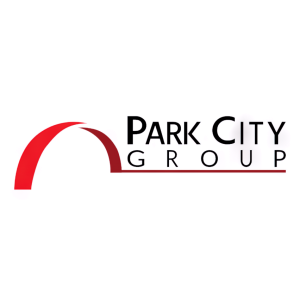ReposiTrak Responds to the FDA FSMA 204 Announcement with the Lowest-Cost, Easiest-to-Adopt and Industry-Backed Traceability Solution
ReposiTrak welcomes the FDA's finalization of Traceability Rule 204 under the Food Safety Modernization Act, mandating enhanced traceability for 16 vulnerable food categories. This rule requires food suppliers to maintain detailed records for critical tracking events, impacting how they manage data. ReposiTrak, as the exclusive traceability partner for the National Grocers Association, aims to facilitate compliance with this low-cost, tech-enabled solution across the food supply chain. The requirement highlights the necessity for modern digital solutions to replace traditional methods.
- ReposiTrak is positioned as a leading traceability partner for the National Grocers Association.
- The new FDA rule mandates better traceability, potentially increasing demand for ReposiTrak's solutions.
- ReposiTrak's services offer a low-cost solution for compliance with FSMA 204, which could lead to higher adoption rates.
- Suppliers face challenges in managing millions of KDE records, risking compliance issues.
- Dependence on complex technology systems may raise concerns about operational implementation.
- Any failure to comply with FSMA 204 could result in legal or financial penalties for suppliers.
Full, end-to-end traceability is now mandated for 16 of the most vulnerable food categories, challenging the way retailers, wholesalers and suppliers create, store and retrieve nearly all shipping and receiving data.
“Traceability isn’t just a tactic for companies that need to comply with FSMA 204 because their products appear on the Food Traceability List; it’s a good business practice for any forward-focused food supply chain operator,” said ReposiTrak Chairman and CEO
FSMA 204 requires companies that manufacture, process, pack or hold foods on the Food Traceability List (FTL) to establish and maintain Key Data Element (KDE) records for specific Critical Tracking Events (CTEs) in a product’s journey through the supply chain. As that product changes hands or changes form, a compounding string of data must be transferred between trading partners to provide full, end-to-end traceability. FDA statements about the rule encourage “voluntary adoption of these practices industry wide.” The FTL includes 16 of the most vulnerable fresh foods categories including tomatoes, deli salads, nut butters and leafy greens and the thousands of SKUs within each category.
Due to the complexity of FSMA 204 recordkeeping requirements, traditional scanning and labeling methods and legacy technology systems will not be adequate. Labels can carry product lot code data, but generally don’t include other required data elements, like transporter info, and time/date of shipment, which are required for a complete KDE record. Label scanning also requires major investment in software and hardware that would impose a significant cost burden on the supply chain. Simply put, the need is for a system over and above labeling to reduce scanning labor, cost and complexity. That is where ReposiTrak excels.
ReposiTrak estimates that retailers and wholesalers will be individually responsible for millions of KDE traceability records per year, which poses two immediate issues. First is the challenge of ingesting information delivered in myriad formats from supplier lists that sometimes climb into the thousands. Second is the issue of data storage and being able to retrieve and send the information in a sortable spreadsheet to the FDA within 24 hours when requested. Furthermore, suppliers are being required to create, store and exchange more information than ever before. The risk is that suppliers will be sending that information in a format that their trading partners will no longer be able to accept. Without the right digital solution, this will be an improbable task. The only solution for the total food supply chain is a technology that acts as a universal translation service, enabling the seamless exchange of data, regardless of format.
“FSMA 204 will have the impact of changing the way every shipment and every delivery record are managed at every food store, restaurant, foodservice company, quick service restaurant and distribution center in the country,” continued Fields. “The focus now needs to shift to rapidly rolling out our easy and economical solution. The ReposiTrak Traceability Network combines the largest, already-connected network of more than 110,000 individual supplier facilities with the support of the industry. Starting now will allow you to successfully comply with FSMA 204 in time for the deadline.”
The ReposiTrak Traceability Network was developed as an answer to industry concerns brought forth by the
Food supply chain operators interested in the ReposiTrak Traceability Network should contact
About ReposiTrak
ReposiTrak,
View source version on businesswire.com: https://www.businesswire.com/news/home/20221108006014/en/
For ReposiTrak Sales Inquiries
435-645-2230
dhannum@repositrak.com
For ReposiTrak Media Inquiries
908-337-0020
ron@rampr.com
Source: ReposiTrak
FAQ
What is the significance of the FDA's Traceability Rule 204 for PCYG?
How does ReposiTrak's Traceability Network aid in compliance with FSMA 204?
What are the benefits of joining ReposiTrak's Traceability Network?
How many food categories are affected by FSMA 204?







